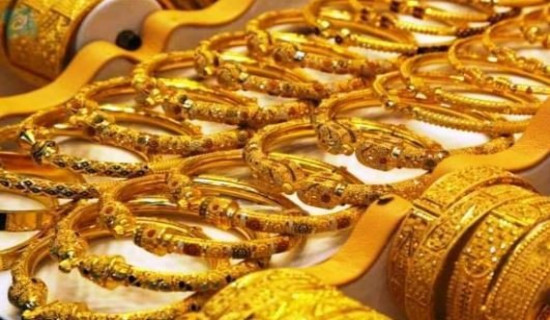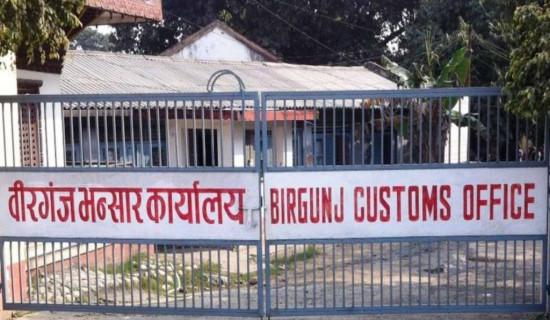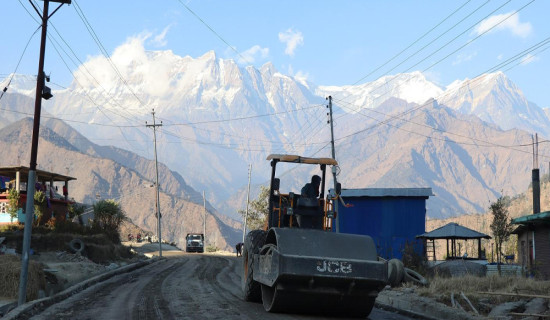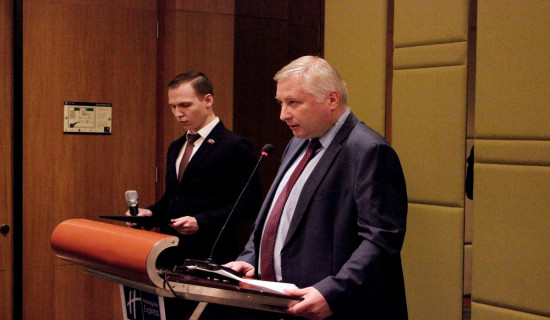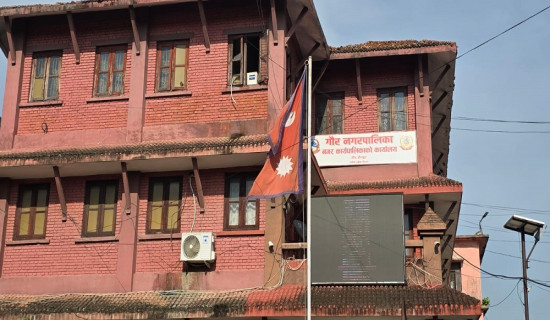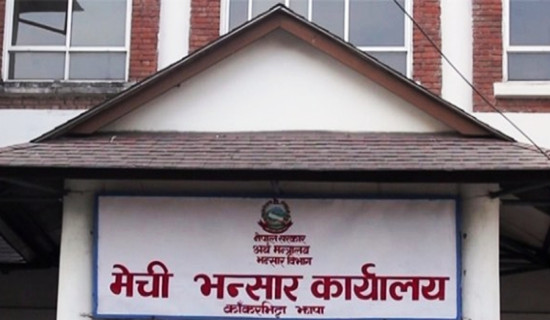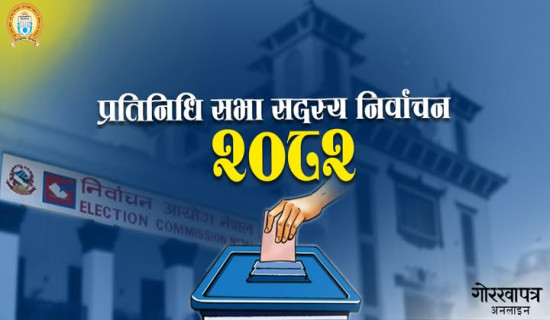- Tuesday, 23 December 2025
Recollections Of First Democratic Movement
Kul Bahadur Gurung
We commemorate the founding of democracy by having our Democracy Day which we realized on Falgun 7, 2007 BS. I have numerous recollections of the 2007 movement. The Nepali Congress reportedly held protests here and there, according to what we had heard. Yugbani was the name of the newspaper that my uncle used to bring home. We'd read it out several times. This journal used to provide news on political uprisings against the Rana regime's dictatorial authority.
Two youngsters were detained in Ilam in Ashoj of the 2006 BS for passing out pro-democracy flyers. They received severe beatings. The campaign gained much-needed impetus while BP Chomjung of Ilam and Dal Krishna Kaji of Jhapa were detained during the Dashain season. They were both assaulted and coerced into accepting the charge. They had been sent to Dhankuta prison. The incident upset us at the time.
The democratic wave in Darjeeling inspired the guys who were attending school. My older uncle got let out of prison. We formerly wore pointed hats. Uncle had advised us to refrain from donning such headgear. When young people from Darjeeling used to refer to us as Congress guys, we schoolboys were delighted.
News on the movement was at the time released by Yugbani and the Statement. We would dress in a white shirt, black shorts, and athletic shoes throughout the Dashain season. We'd appear different. Someone informed us that we were wearing Congress dresses. On the rallies and demonstrations in Biratnagar and Birgung, Yugbani and the Statement would write. I was required to routinely read newspapers. I felt as though I had missed a crucial task when I failed to read it. After my tests, I used to read the newspaper while I was in school.
There was doubt over what would transpire in 2007 BS. Yugbani began publishing risky news. We read them secretly. The Nepali Congress reportedly held pro-democracy protests in a number of regions in the nation, according to the news. The Statement newspaper broke the story that "Dhankuta is captured by the NC" while I was in Mukharam's store in Dhankuta. As I showed it to my father, he exclaimed in complete shock.
Once the two guys were taken into custody, Ilam fell silent. A member of the then King's family had passed away at the same time. Narendra Bastola, a supporter of the NC, was detained on the grounds that he hadn't had his hair chopped to grieve the passing of royal family members. The police afterwards shaved his head. Suddenly he vanished. After some time, he acquired a home in Darjeeling. In Ilam and Jhapa, they were trying move from time to time. But Madhesh locals do not want to come to the hills, and those from the hills do not want to move to Madhesh.
Bastola’s relative was Dal Prasad Dhakal, and Bhairab Bahadur Subba worked for the Jhapa administration. Afterwards, Subb joined the NC. As pro-democracy actions began to take place in the township of Ilam, soldiers were sent there forcefully. It would be challenging to keep the situation under control if it had happened in Ilam. Yet everything took place without a grave incident. Due to Darjeeling's impact, democracy was established in Ilam before Falgun 7, 2007 BS. due to the fact that many Indians joined the pro-NC workers who overran Pashupatinagar and its post office.
My older uncle had joined the Indian Congress as a volunteer. There, he was detained and imprisoned. They deported him back to Nepal when he confessed that he was a Nepali. We regularly travelled to Darjeeling at those time. The two people's arrests and Bastola's head shaving had political reverberations in Ilam. The Nepali Congress then became the party followed by many residents.
Bhairab Bahadur Subba, a Rana administration officer in Jhapa who had gotten land as a reward for his exemplary work, joined the NC. Others were motivated to support Congress by his deeds. To fetch money, he went to the army barracks in Ilam. But, a Jhapa official did not present any cash. To bring money from the NC, we travelled from Ilam to Jhapa. Funding was refused to Subba. The NC maintained a tight check on the barracks in Jhapa where the money was held in case it was taken elsewhere. By erecting bunkers and enclosing the barracks, we managed to stay there.
Rana rulers weakened during the moment. Demonstrators took control of Birgunj. With the death of Thir Bam, Rana reclaimed Birgunj. The movement peaked at that point. There, Tarani Koirala started a radio station that promoted democracy. The radio promoted movement by transmitting both informative and propaganda content. It aired information about the NC's takeover of several towns.
Those were propaganda news, I now think. They did, however, work. All students, intellectual individuals, and residents close to the Nepal-India border who had heard of the Indian Congress joined the pro-democracy campaign.
We soon attained democracy thanks to Darjeeling, where many inhabitants of Ilam and Jhapa used to stay as well as where students from Dhankuta would travel. I reflect on how quickly and readily democracy was attained in 2007 BS The non-violent revolution was successful. Democracy then was a whim-produced system.
Yet there was no strategy for governing democracy so that everyone would win. While in Delhi, BP Koirala was influenced by a socialist politician in India. Subarna Shamsher brought changes in BP's perspective.
He said that while Indians were working hard to build democracy in Nepal, our democracy could not advance in the same way or with the same fervour as democracy in India. BP was persuaded to alter his route by Subarna.
Once Rana's excitement waned, democracy was easily established. Juddha SJB had already quit power. The supervisor was Mohan SJB Rana. Despite being aware of the circumstances and knowing that BP Koirala was in Kathmandu, his son Bijaya SJB Rana did not arrest him. He was aware that the Ranas would suffer if he arrested BP. But, Mohan SJB persisted requesting that his son detain BP. He vented his anger against his son for failing to apprehend BP, which forced him to do so the next day.
BP was later detained and delivered to Mohan Shumsher. Everyone was aware of BP's strong ties to Indian socialists, and Rana rulers were aware of this and thus did nothing to stop him. There was a hunger strike by BP. Mohan Shumsher made him an offer of 100,000 rupees. His mother, brothers Tarani and brother Girija Prasad Koirala visited him at his detention at the time and urged him to keep on his hunger strike. To get him to continue the hunger strike, they squeezed his leg.
On the other side, Mohan SJB wanted to free him after compelling him to terminate his fast. Are you attempting to become like us? he inquired when he first met BP. BP responded by saying he had no such purpose. He said that he had just requested that Ranas open schools and colleges. Later Mohan Shumsher gave 100,000 rupees to BP and requested him to get into agriculture. BP took the fund and went to Jhapa. In Jhapa, BP instructed party members to use the funds that Mohan SJB Rana had given him to purchase weapons. But Subarna Shumsher was in charge of organising the movement in a practical way. Because of Subarna’s efforts, democracy was established in the nation very quickly.
On the basis of the foundation made in 2007 BS, democracy was restored in 2046 and 2062–2063 BS. The republican system was put into place in 2063 BS. Youth and intellectuals began letting go outdated concepts and constructing new ones after the movement of 2007BS had opened the door. Rural residents at the time had faith in the Ranas’ tenacity and the British government's commitment to staying in India. Yet informed participants brought about adjustments.
Due to changes in the people's attitude brought on by changing time and circumstances, Nepal has currently adopted republicanism, federalism, secularism, and a proportional form of governance. Nobody considered them viable in Nepal during the first revolution. We took lessons from and adopted the policies of our neighbouring countries. The 2007 BS movement laid the groundwork for all current improvements.
Reforms and transformations happen gradually; they cannot take place all at once. Currently, most people believe we must pay taxes. But, it was never put into action. Those were the days when individuals were bought and employed as bonded labourers, or kamara-kamari. Gradually, that system was eliminated.
Slavery was outlawed in America by President Lincoln. Before that, slaves from Africa were smuggled into the US. What I'm trying to express is that things and situations change as we take lessons from different communities and countries.
Our leaders used what they had learnt from India to implement political and other changes in Nepal in 2007 BS. From India, BP and other leaders learnt a lot. India had an impact on our four martyrs of that era as well. Globalization has taken hold in the modern world. We are also affected by the developments taking on throughout the globe.
(As told to TRN journalist Ram Prasad Dahal)
(Kul Bahadur Gurung is a veteran Nepali Congress leader from Ilam district)
How did you feel after reading this news?









